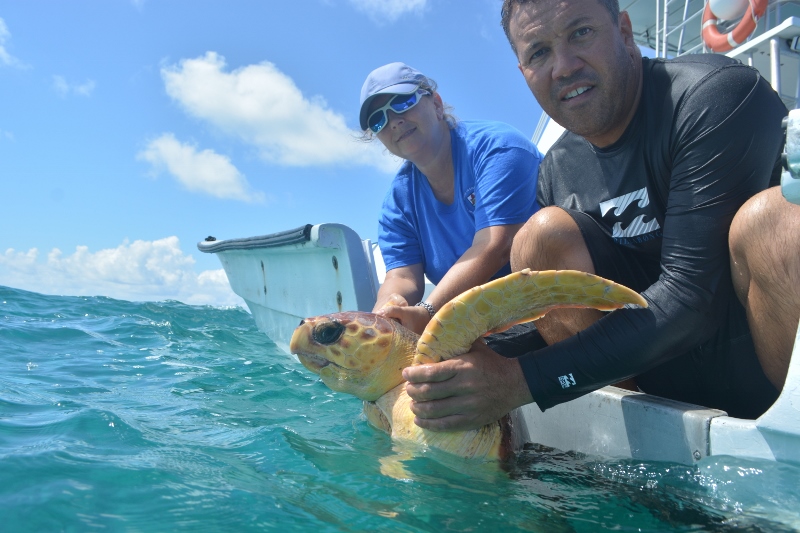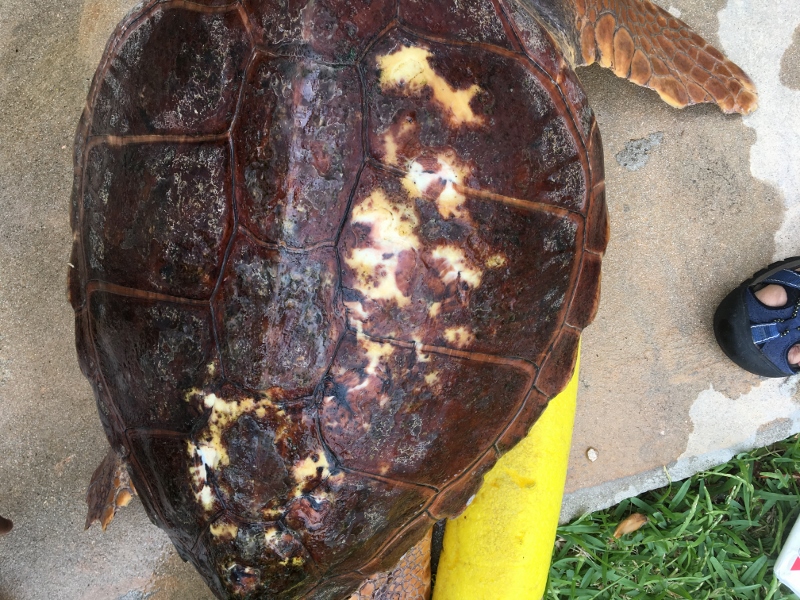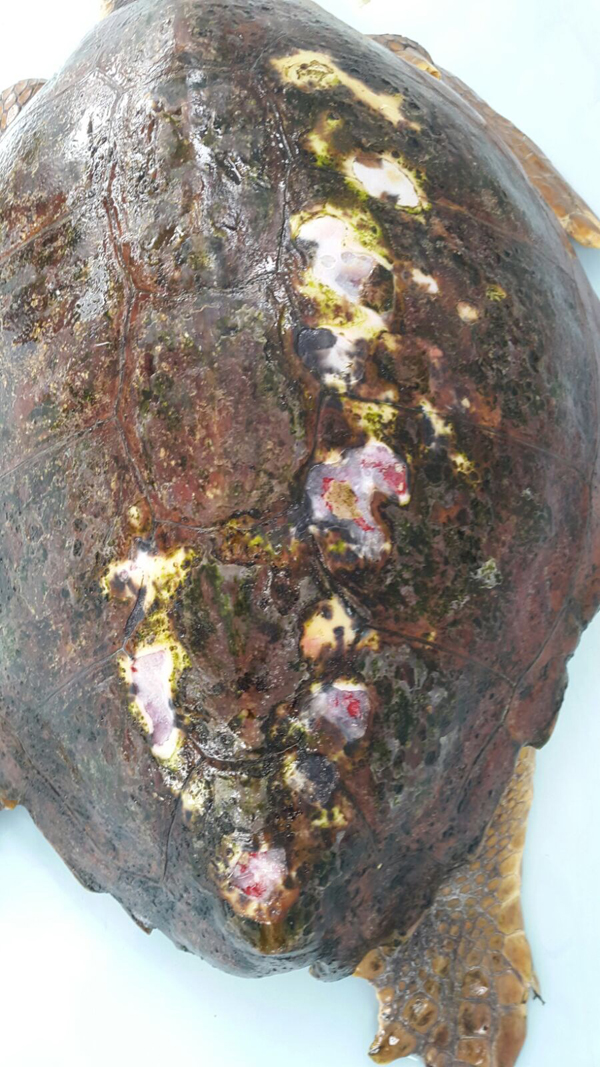Recent News
Micro Forests set to get biggerSaturday, August 27, 2022
More microforests are set to appear around the island as a Bermuda Zoological Society project to plant more trees and shrubs continues to grow.
The BZS Awards Four Students Environmental Science Scholarships
Wednesday, August 24, 2022
Four Bermudian students have been awarded a combined $15,000 in educational funds as part of the Bermuda Zoological Society’s (BZS) annual BZS Steinhoff programme. Osei Agyapong, Imogen Peckett, Logan Soares and Naphisa Smith were selected for their academic achievements and their commitment to protecting the environment.
From Block Island to Montauk Through Sharks, Currents and Cramps
Tuesday, August 23, 2022
Lori King of Long Island finished a nearly 24-mile trip in 8 hours 39 minutes 45 seconds. Once her swim is certified, King will be recognized as the first person to complete the journey.
Hamilton Lions pump up the cash for local charities
Wednesday, July 06, 2022
Two charities reaped $11,000 each thanks to an enduring fundraiser by Hamilton Lions Club.
The proceeds from the club’s 53rd annual Gas-O-Rama and raffle draw were presented to Vision Bermuda and the Bermuda Zoological Society.
Aspen Plants First Red Mangroves on Trunk Island
Wednesday, June 22, 2022
On Friday 3rd June, employees from Aspen were excited to plant the first young red mangrove trees in their sponsored Coastal Red Mangrove Forest on Trunk Island – the Bermuda Zoological Society’s (BZS) ‘Living Classroom’.
About
GovernanceAbout Us
Newsletter
Latest News
Gift & Bookstore
Contact
General Inquiries
info@bzs.bm
Latest News
All the latest updates and news from the Bermuda Aquarium, Museum, and Zoo, one of Bermuda's leading visitor attractions!
A loggerhead turtle named ‘Chad’ — who was found entangled in cargo netting last October — was released into the waters off our coast last week after a lengthy rehabilitation at Bermuda Aquarium Museum and Zoo [BAMZ].
“Divers from Blue Water Divers found Chad floating in Ely’s Harbour in October of last year. Chad was in considerable distress because he was tightly entangled in a massive amount of cargo netting,” the Department of Environment and Natural Resources said.
“The Blue Water team removed the netting but discovered that Chad could not dive below the surface so they brought Chad to BAMZ.

“Dr. Ian Walker, Principal Curator at BAMZ, examined the loggerhead. There were significant grooves in the marginal scutes of the carapace [grooves in edge of top shell] which would indicate that the turtle was entangled for a long time. It took about 10 days for Chad to start diving to the bottom of his enclosure.
“One theory for the buoyancy problem is that turtles hyperinflate their lungs as a survival mechanism. Since they are air breathers, making themselves positively buoyant would assist them staying at the surface to breathe in spite of the weight of the net. Another theory is that this is how their bodies respond to an infection.
“There were numerous locations where the shell was ulcerated and there was a concern the turtle was septic and therefore would not have a very good prognosis. Dr. Walker and the team knew Chad needed food, antibiotics, a clean environment and time to recover. The aquarists kept Chad well fed and clean. Happily, he began eating an average of 1.5lbs of herring a day shortly after his arrival.

“The healing process took quite a while; turtles can be quite resilient but they take their time getting better. Winter water temperatures slowed things down but as the water started to warm up, the healing moved along nicely. The loggerhead was examined monthly to assess the ulcerated shell. There were several spots that needed new bone growth.”
Roma Hayward, Animal Care and Quarantine Officer, was responsible for debriding the wounds monthly to assist with the healing process.
“Chad survived a terrible ordeal and has healed well,” she said. “He will have a microchip and flipper tags in the event he shows up somewhere else. He will be able to be identified and it signifies that he was captured before.”

The Department added, “Of the seven turtles species around the world, five have been found locally with the most common being Greens and Hawksbills followed by Loggerheads. Bermuda normally gets post-hatchlings [younger than a year] in the winter and spring that get washed in with sargassum weed but Chad is unusual in that he is much older.
“Unlike the other turtles found in the Atlantic the loggerhead pelagic [open ocean] stage is quite protracted as these animals spend many years drifting with the currents and sargassum. Chad is expected to eventually settle in the Eastern Atlantic to start the next stage of his life.
The Department also noted that Chad may not, in fact, be male, as his caregivers are unsure of the gender at this time since Chad is in the intermediate stage of development [neither juvenile nor adult]. These turtles do not develop any sexual dimorphic features until adulthood.


